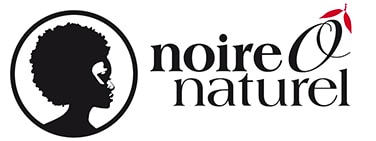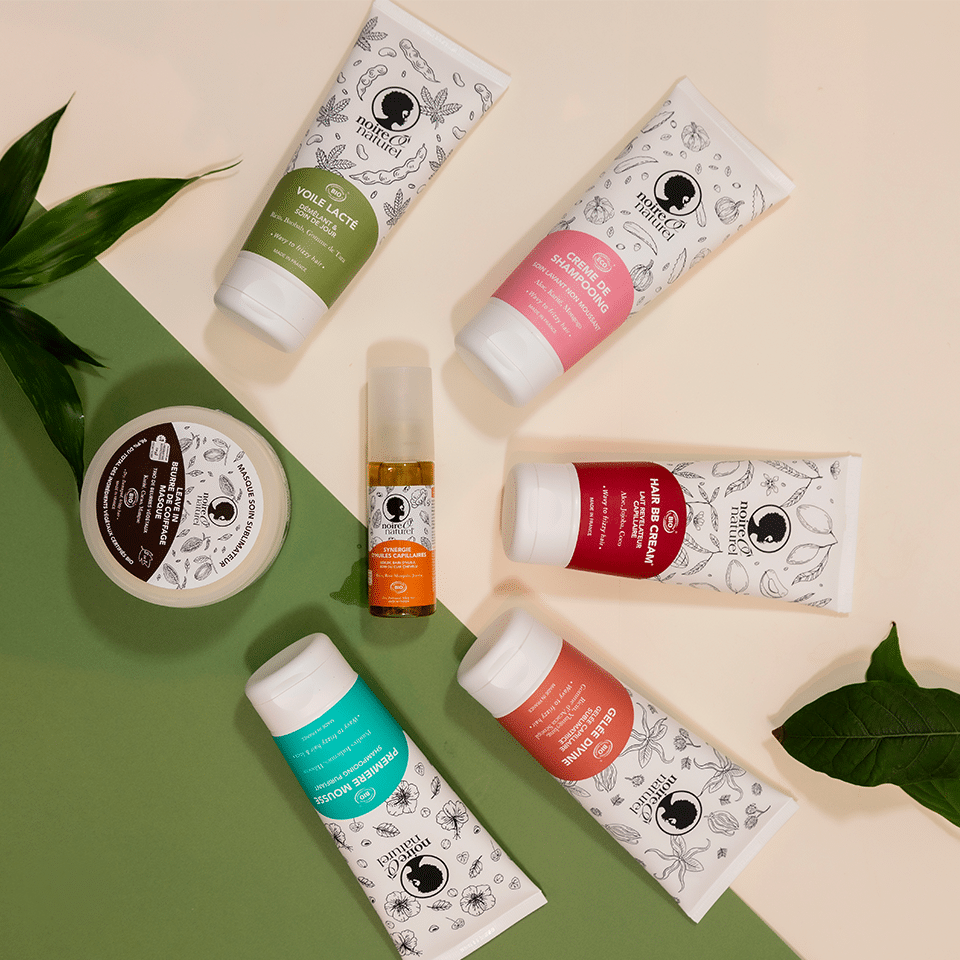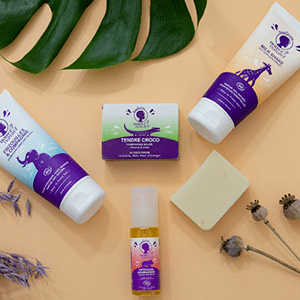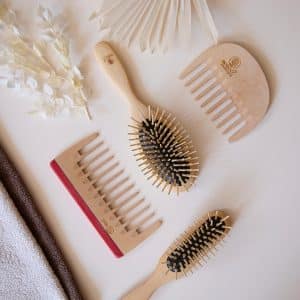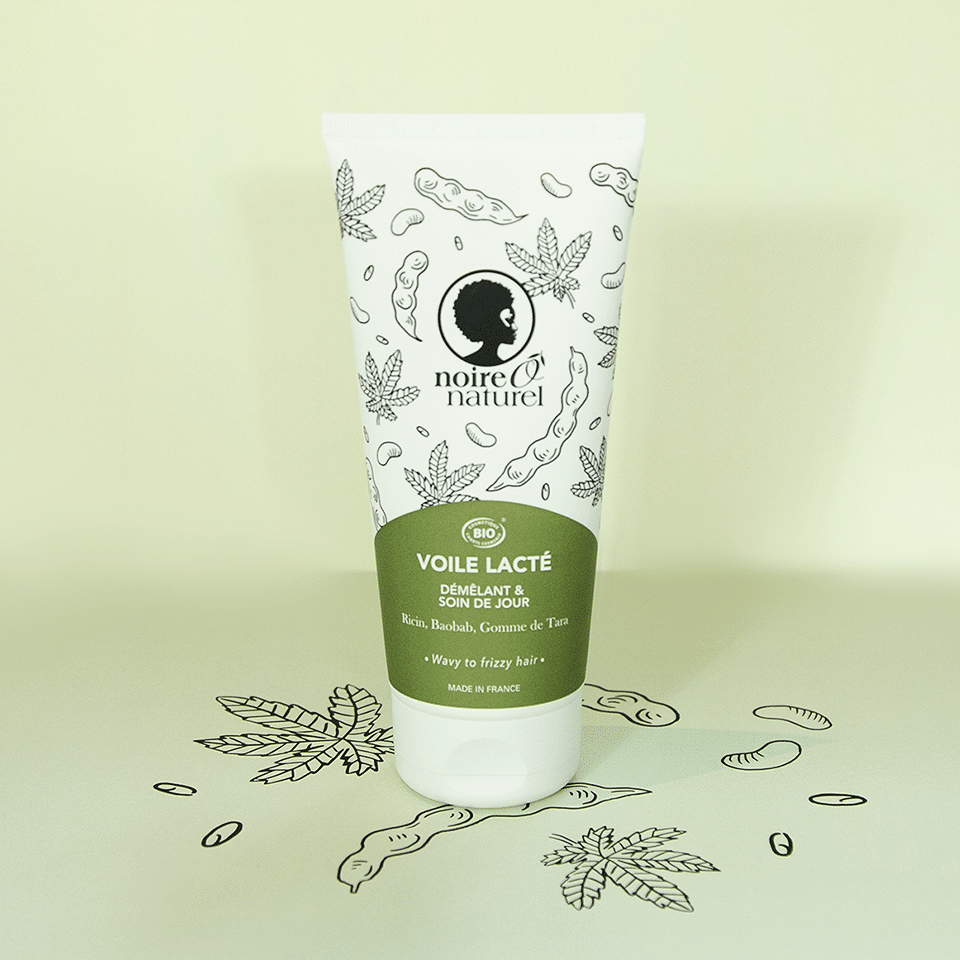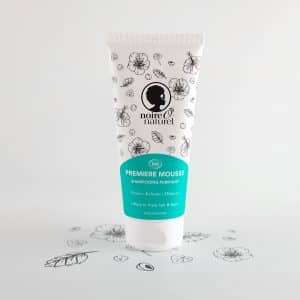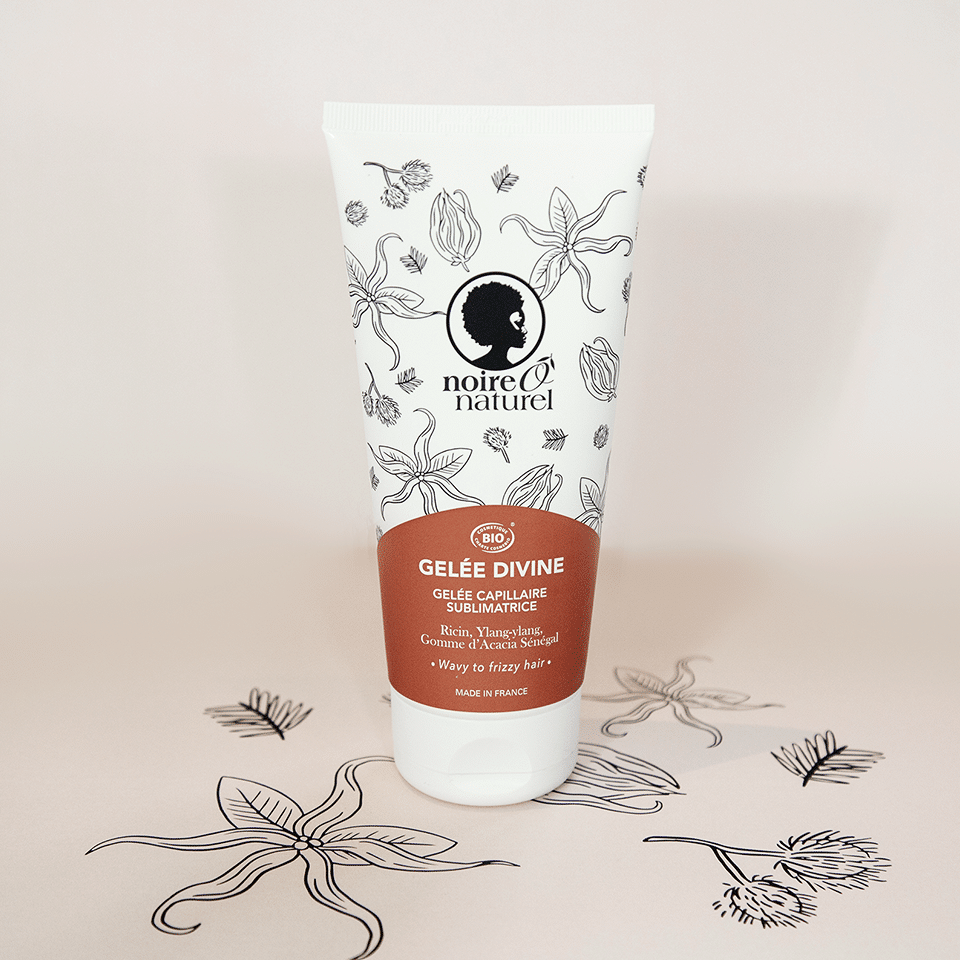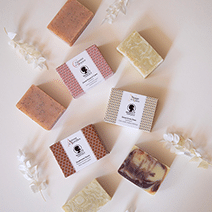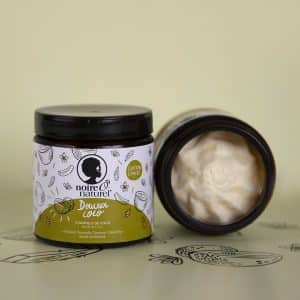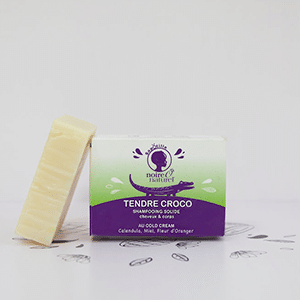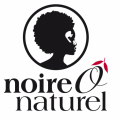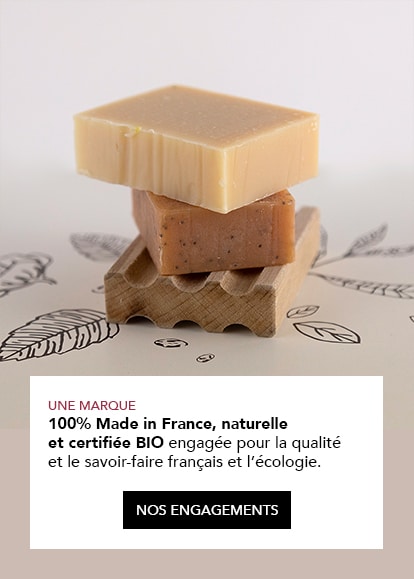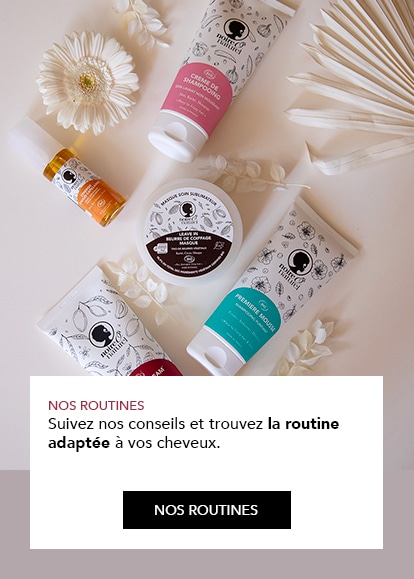Copyright photographie : Kelly his pour Noireônaturel
You may have had your hair straightened… or know someone who has. The history of straightening frizzy hair is deeply rooted in the quest to conform to prevailing hair standards. It’s a complex and sometimes controversial story that raises questions about identity, self-esteem and perceptions of beauty.
In this article, we explore the evolution of straightening frizzy hair over time, focusing on the socio-cultural factors that have influenced the practice. In short: to gain a better understanding of straightening and its origins, and to work towards ensuring that it is no longer seen as an almost compulsory rite of passage.
1. The origins of straightening :
The first traces of straightening date back to ancient Egypt (yes, that’s a long time ago!). Women used alkaline substances to relax their curls and obtain a smoother texture. Over the centuries, this practice spread to other parts of the world, notably Europe and America, where it was often associated with notions of social status and prestige.
So the hegemony of the smooth standard is nothing new!
2. Socio-cultural context:

Throughout history, beauty standards have largely been dictated by dominant societies, often influenced by Western ideals… ideals built around European beauty canons, which often had pretty straight hair. Straight hair was seen as more ‘civilised‘ and in line with Eurocentric beauty standards, while frizzy hair was often devalued and seen as ‘unprofessional‘ or ‘unruly‘. And with strong reason: frizzy hair was associated with black people, who were themselves deeply stigmatised. After slavery and the segregation movements, racism has had a profound impact on our societies, right up to the present day. Frizzy hair is still associated with a lack of professionalism and seriousness, particularly in the workplace.
Copyright photographie : Kelly His pour Noireônaturel
3. The impact of the civil rights movement:
In the 1960s, the civil rights movement played a crucial role in redefining black beauty. Leading figures such as Angela Davis and Cicely Tyson encouraged black women to embrace their natural hair, emphasising self-esteem and pride in black identity. These women became icons for embracing their kinky hair and afro cuts, proving that you could be successful by staying true to the nature of your hair.
4. Relaxation as a means of assimilation:
Despite advances in the perception of black beauty, many women have continued to submit to straightening due to social and professional pressure. And can you blame them? In many cases, straightening was seen as a means of assimilation, a way of avoiding prejudice and fitting in better in certain circles. It was even associated with a rite of passage in many families, who straightened their children’s hair from infancy, particularly their daughters. And yet, straightening is not without its dangers, both to the health of the hair and to health itself. But that doesn’t matter: for many people, straightening was the only way to get their hands on the dream of flexible hair, and above all to integrate more easily into society. The aim of this article is not to make those who still do it feel guilty, but simply to help you understand the ins and outs of the practice a little better.

Copyright photographie : Kelly His pour Noireônaturel
5. Reclaiming natural beauty:
Over the last few decades, a movement to reclaim natural beauty has emerged. More and more black women have chosen to say goodbye to harsh chemicals and return to their natural hair. This movement has been supported by online platforms, influencers and brands that have encouraged self-acceptance and the celebration of hair diversity (this is what we did !).
6. A redefinition of beauty:

Today, black beauty is increasingly exalted in all its diversity. Black women are embracing their kinky, curly and Afro hair with pride. Afro hairstyles are being showcased and celebrated. Hair product brands specialised in natural hair care have sprung up, offering a range of products adapted to the specific needs of frizzy and curly hair (which is also the case for us at Noireônaturel: that’s why we exist!).
Copyright photographie : Kelly His pour Noireônaturel
The history of straightening frizzy hair is a complex one, revealing the social and cultural pressures faced by black women. However, a powerful movement to reclaim natural beauty has emerged in recent decades, enabling black women to assert themselves, celebrate their identity and redefine hair standards. Whether you choose to straighten or embrace your natural hair, the most important thing is to make that choice with a clear conscience, the choice that will allow you to feel good about yourself and love yourself as you are.
We also wrote some articles on this subject, to explain this movement of straightening hair, to show its origins, and to explain how to take care of it.
